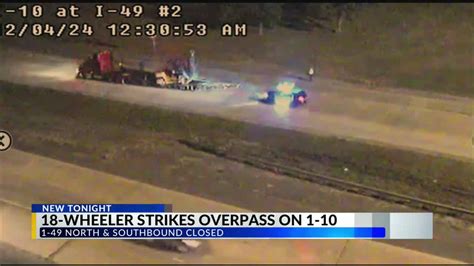
A California political advisor, identified as Sean Kent, claims he was detained at the Reno-Tahoe International Airport and questioned about his political affiliations after being asked, “Are you from California?” The incident, which Kent described in a social media post, has sparked controversy and raised concerns about potential profiling and infringement of constitutional rights.
Sean Kent, a political strategist and consultant based in California, alleges he was singled out at Reno-Tahoe International Airport and subjected to questioning by law enforcement officials after deplaning. Kent stated the encounter began with a seemingly innocuous question about his place of origin. “I was asked, ‘Are you from California?'” Kent recounted in a detailed post on X (formerly Twitter). He said that after confirming he was from California, he was then asked to step aside for further questioning.
According to Kent, the subsequent interrogation delved into his political activities, affiliations, and the nature of his work. “They started asking me about my political views, who I worked for, and what I was doing in Nevada,” Kent explained. He expressed concern that his detention and questioning were based solely on his residency in California and potentially his perceived political leanings. Kent, who has worked on numerous political campaigns and advised various candidates, believes he was targeted due to his profession and the current political climate.
The incident has ignited a debate about potential profiling and the balance between national security and individual liberties. Legal experts and civil rights advocates have weighed in, raising questions about the legality and constitutionality of such actions. Critics argue that targeting individuals based on their state of origin or perceived political beliefs is a violation of their rights and sets a dangerous precedent. Supporters, on the other hand, contend that law enforcement agencies have a responsibility to gather intelligence and prevent potential threats, even if it means subjecting individuals to scrutiny.
The Reno-Tahoe Airport Authority and relevant law enforcement agencies have yet to release a comprehensive statement addressing the specific allegations made by Kent. However, initial responses indicate that they are reviewing the incident and gathering information. The lack of transparency and official explanation has fueled public speculation and heightened concerns about potential abuses of power. The incident comes amidst growing political polarization and increased scrutiny of law enforcement practices, making it a highly sensitive and closely watched case.
Kent has retained legal counsel and is considering his options for further action. He is demanding transparency and accountability from the authorities and seeking assurances that similar incidents will not occur in the future. The case has attracted significant media attention, with various news outlets and political commentators offering their perspectives on the matter. It has also prompted discussions about the broader implications for individuals traveling across state lines and the potential for political profiling.
The incident has resonated with many Californians who feel they are being unfairly targeted or stereotyped due to their state’s progressive political views. It has also raised broader questions about the treatment of individuals with dissenting opinions or unconventional beliefs. Civil liberties organizations are calling for greater oversight and accountability of law enforcement agencies to prevent potential abuses of power and protect the rights of all citizens.
Expanded Details and Context
The allegations made by Sean Kent highlight a growing concern about the intersection of law enforcement, political beliefs, and individual freedoms in the United States. In an increasingly polarized political landscape, there are fears that law enforcement agencies may be influenced by partisan agendas or biases, leading to the targeting of individuals based on their political affiliations or beliefs.
Kent’s specific claim that he was questioned about his political views and professional activities after being identified as being “from California” has raised red flags among civil rights advocates. They argue that such questioning could constitute a violation of his First Amendment rights, which protect freedom of speech and association. Furthermore, they argue that targeting individuals based on their state of origin could be considered a form of discrimination and a violation of the Equal Protection Clause of the Fourteenth Amendment.
The Reno-Tahoe International Airport, like other airports across the country, operates under a complex framework of federal and state regulations. Law enforcement agencies, including the Transportation Security Administration (TSA) and local police departments, have broad authority to conduct security screenings and investigations. However, these powers are subject to constitutional limitations and legal safeguards.
The Fourth Amendment of the Constitution protects individuals from unreasonable searches and seizures. This means that law enforcement officials generally need a warrant based on probable cause before they can detain or search someone. There are exceptions to this rule, such as when there is reasonable suspicion that someone has committed a crime or poses a threat to public safety.
The question of whether the detention and questioning of Sean Kent were justified under the Fourth Amendment will likely depend on the specific facts and circumstances of the case. If law enforcement officials had a reasonable suspicion that Kent was involved in criminal activity or posed a threat, they may have been justified in detaining him for questioning. However, if the detention was based solely on his residency in California and his perceived political beliefs, it could be considered a violation of his constitutional rights.
The lack of transparency and official explanation from the Reno-Tahoe Airport Authority and relevant law enforcement agencies has further fueled the controversy. Critics argue that the authorities have a responsibility to provide a clear and detailed account of what happened and to justify their actions. They also demand that the authorities conduct a thorough investigation into the incident and take appropriate disciplinary action if any wrongdoing is found.
The incident has also raised broader questions about the role of law enforcement in a democratic society. In a free and open society, law enforcement agencies are supposed to be neutral and impartial, and they are not supposed to target individuals based on their political beliefs or affiliations. However, there are concerns that law enforcement agencies may be influenced by partisan agendas or biases, particularly in an increasingly polarized political climate.
To address these concerns, civil liberties organizations are calling for greater oversight and accountability of law enforcement agencies. They are advocating for policies that would prevent political profiling and ensure that law enforcement officials respect the constitutional rights of all citizens. They are also calling for greater transparency and public access to information about law enforcement practices.
The Sean Kent incident is not an isolated case. There have been other reports of individuals being targeted by law enforcement officials based on their political beliefs or affiliations. These incidents raise serious concerns about the erosion of civil liberties and the potential for abuse of power. It is essential that these incidents are thoroughly investigated and that steps are taken to prevent them from happening again.
The controversy surrounding Sean Kent’s detention at the Reno-Tahoe International Airport underscores the importance of protecting individual freedoms and ensuring that law enforcement agencies operate within the bounds of the Constitution. It also highlights the need for greater transparency and accountability in law enforcement practices. As the political climate continues to be polarized, it is crucial that we remain vigilant in defending our civil liberties and preventing the abuse of power.
The legal ramifications of the situation are significant. Kent could potentially pursue legal action against the airport authority and the involved law enforcement agencies, alleging violations of his constitutional rights, including unlawful detention, freedom of speech, and equal protection under the law. To succeed in such a lawsuit, Kent would need to demonstrate that his detention was not based on reasonable suspicion or probable cause and that it was motivated by his political beliefs or residency in California.
The case could also have broader implications for airport security procedures and law enforcement practices nationwide. If it is determined that Kent was unfairly targeted, it could lead to changes in training and protocols to prevent similar incidents from occurring in the future. It could also prompt legislative action to strengthen protections against political profiling and ensure that individuals are not subjected to unwarranted scrutiny based on their beliefs or affiliations.
The political context surrounding the incident is also noteworthy. California is often viewed as a bastion of progressive politics, and there is a perception among some conservatives that Californians are inherently liberal and potentially subversive. This perception could have played a role in Kent’s detention, if law enforcement officials were acting on biases or stereotypes about Californians.
The incident also comes at a time of heightened political polarization and distrust of government institutions. Many Americans feel that their voices are not being heard and that the government is not responsive to their needs. This sense of alienation can lead to anger and frustration, and it can also make people more suspicious of law enforcement agencies.
In light of these factors, it is important to approach the Sean Kent incident with a critical and nuanced perspective. While it is important to respect the role of law enforcement in protecting public safety, it is also essential to safeguard individual freedoms and ensure that everyone is treated fairly and equally under the law.
Additional Considerations:
- The Role of Social Media: Kent’s use of social media to publicize his experience played a significant role in bringing the issue to public attention. Social media has become an increasingly important tool for individuals to share their stories and hold powerful institutions accountable.
- The Importance of Documentation: Kent’s decision to document his experience on social media also provided valuable evidence that could be used in any potential legal proceedings. It is always advisable to document any interaction with law enforcement officials, particularly if you believe that your rights have been violated.
- The Need for Legal Representation: Kent’s decision to retain legal counsel was a wise one. An attorney can help him understand his rights and options and can represent him in any legal proceedings.
The incident serves as a reminder of the importance of vigilance in protecting our civil liberties and holding those in power accountable. It also highlights the need for ongoing dialogue and debate about the appropriate balance between national security and individual freedoms.
Frequently Asked Questions (FAQ)
Q1: What exactly happened to Sean Kent at the Reno-Tahoe International Airport?
A1: Sean Kent, a California political advisor, claims he was detained and questioned at the Reno-Tahoe International Airport after being asked if he was from California. He alleges that the questioning focused on his political views, affiliations, and work. According to Kent’s account on social media, the incident began with the seemingly innocuous question about his residency, which then escalated into an interrogation about his political activities after confirming his California origin.
Q2: Why is this incident considered controversial?
A2: The incident is controversial because it raises concerns about potential political profiling and infringement of constitutional rights. Critics argue that targeting individuals based on their state of origin or perceived political beliefs is a violation of their First Amendment rights (freedom of speech and association) and the Equal Protection Clause of the Fourteenth Amendment. There are concerns that law enforcement agencies may be influenced by partisan agendas, leading to the targeting of individuals based on their political affiliations or beliefs.
Q3: What has been the response from the Reno-Tahoe Airport Authority and law enforcement agencies?
A3: The Reno-Tahoe Airport Authority and relevant law enforcement agencies have not released a comprehensive statement addressing the specific allegations made by Kent. Initial responses indicate that they are reviewing the incident and gathering information. The lack of transparency has fueled public speculation and heightened concerns about potential abuses of power.
Q4: What legal actions could Sean Kent take?
A4: Kent could potentially pursue legal action against the airport authority and the involved law enforcement agencies, alleging violations of his constitutional rights, including unlawful detention, freedom of speech, and equal protection under the law. He would need to demonstrate that his detention was not based on reasonable suspicion or probable cause and that it was motivated by his political beliefs or residency in California.
Q5: What are the broader implications of this incident for travelers and civil liberties?
A5: The incident raises broader questions about the treatment of individuals with dissenting opinions or unconventional beliefs and the potential for political profiling. It highlights the need for greater oversight and accountability of law enforcement agencies to prevent potential abuses of power and protect the rights of all citizens. It also underscores the importance of vigilance in protecting civil liberties and ensuring that law enforcement agencies operate within the bounds of the Constitution.
The incident involving Sean Kent at the Reno-Tahoe International Airport serves as a microcosm of larger societal tensions surrounding political polarization, law enforcement practices, and the protection of individual freedoms. It is a complex issue with potential ramifications for both individuals and institutions. The resolution of this case and the broader societal dialogue it sparks will be crucial in shaping the future of civil liberties in the United States.
Kent’s specific allegations, if proven true, could expose systemic issues within the airport security apparatus or law enforcement agencies involved. The question of whether he was singled out based on legitimate security concerns or impermissible factors such as his place of origin and political beliefs will be central to any investigation or legal proceedings.
Furthermore, the incident underscores the delicate balance between security measures and individual rights. While law enforcement agencies have a legitimate need to ensure public safety, it is essential that they do so in a manner that respects the constitutional rights of all citizens. Indiscriminate targeting or profiling based on political beliefs or affiliations is not only a violation of individual rights but also undermines the principles of a free and democratic society.
The response from the Reno-Tahoe Airport Authority and law enforcement agencies will be closely scrutinized. Transparency and accountability are essential in addressing the allegations and ensuring that appropriate measures are taken to prevent similar incidents from occurring in the future. A failure to address the concerns raised by Kent could further erode public trust in law enforcement and government institutions.
The incident also serves as a reminder of the importance of civic engagement and advocacy. Individuals who believe that their rights have been violated should not hesitate to speak out and seek legal recourse. Civil liberties organizations play a crucial role in advocating for the rights of individuals and holding government accountable.
In conclusion, the Sean Kent incident is a complex and multifaceted issue with significant implications for individual freedoms and the rule of law. It is essential that the allegations are thoroughly investigated and that appropriate measures are taken to address any wrongdoing. The incident should also serve as a catalyst for broader dialogue and reflection on the balance between security measures and individual rights in a democratic society.
The case of Sean Kent brings to the forefront the potential for abuse within security protocols, regardless of the setting. Airports, by nature, operate under heightened security measures, which can inadvertently lead to situations where individual liberties are compromised. The critical question in Kent’s case is whether the security personnel acted within the bounds of established procedures and constitutional rights, or whether they overstepped their authority based on biased assumptions or discriminatory practices.
The ripple effects of this incident extend far beyond Kent himself. It has sparked a broader conversation about the potential for political profiling and the erosion of trust in law enforcement. In an era of increasing political polarization, it is crucial to safeguard against the misuse of authority to target individuals based on their beliefs or affiliations.
Moving forward, it is imperative that law enforcement agencies and security personnel receive adequate training on constitutional rights, bias awareness, and de-escalation techniques. Clear and transparent guidelines must be established to ensure that security measures are implemented in a fair and equitable manner. Furthermore, mechanisms for accountability and redress must be in place to address instances of alleged abuse or misconduct.
The Sean Kent incident serves as a stark reminder of the importance of vigilance in protecting our fundamental freedoms and upholding the principles of justice and equality. It is a call to action for individuals, civil liberties organizations, and government institutions to work together to ensure that security measures do not come at the expense of individual rights and liberties. The incident has implications for travel and tourism in Nevada, especially for those coming from California.
The questions surrounding the incident also bring forth questions about data collection and data privacy. Kent’s claims on social media platforms highlight the fine line between gathering necessary information and infringing upon personal privacy. If law enforcement is compiling a list of travelers based on their origin and using such information for political profiling, there is a serious breach of the public’s trust and a disregard for civil liberties.
The political advisor’s detention controversy has opened up a dialogue about the extent to which authorities can question individuals without probable cause and what constitutes reasonable suspicion. This discussion is crucial for understanding the boundaries of law enforcement’s power and ensuring that constitutional rights are protected.
There is a need to ensure that all citizens are treated with fairness and respect, regardless of their state of origin or political leanings. When individuals feel that their rights have been violated, it erodes trust in government and can lead to social unrest. Transparency and accountability are essential for maintaining a healthy and functioning democracy.
The incident underscores the importance of vigilance in protecting our fundamental freedoms and upholding the principles of justice and equality. It is a call to action for individuals, civil liberties organizations, and government institutions to work together to ensure that security measures do not come at the expense of individual rights and liberties.








